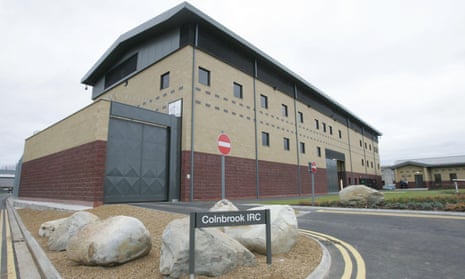A catalogue of failings contributed to the killing of a “gentle and polite” man in immigration detention, an inquest jury has found.
The jury at West London coroner’s court examined the role of the Home Office, the Ministry of Justice, health professionals and detention centre subcontractors in the death of Tarek Chowdhury, from Bangladesh.
The 64-year-old was killed by Zana Assad Yusif, 33, from Iraq, at Colnbrook immigration removal centre, near Heathrow, in December 2016.
Yusif, who was known to mental health services and had 16 previous convictions for 33 different offences, beat Chowdhury to death just two days after the latter arrived at Colnbrook. Chowdhury had lived in the UK for 13 years and was detained by the Home Office as an overstayer when he attended a regular reporting session. Yusif arrived in the UK inside a lorry at the age of 17.
Yusif pleaded guilty to manslaughter on the grounds of diminished responsibility because of his mental health problems at a trial at the Old Bailey in London in May 2017. He was sentenced to 15 years in jail.
In response to the verdict, a Home Office spokesperson said: “Our thoughts and sympathies are with Mr Chowdhury’s loved ones, and we deeply regret any failings that may have contributed to his death.
“Following Mr Chowdhury’s tragic death we have taken a number of actions to prevent something like this happening again, informed by investigations by police and the independent Prisons and Probation Ombudsman.
The expression of regret followed a narrative conclusion that found Yusif should not have been placed in an immigration removal centre and that there was an absence of an appropriate system to share information about Yusif’s risk of violence which caused or contributed to Chowdhury’s death.
The jury also found failures to properly assess and share information about his mental health and inappropriate staffing and handover arrangements and that these failures may have caused or contributed to Chowdhury’s death.
Assistant coroner Richard Furniss said he would be making a prevention of future deaths report asking the Home Office and the Ministry of Justice to look at continuing difficulties with information sharing
The Home Office spokesperson said: “We will listen to the coroner’s recommendations on what more can be done and will take immediate action in a number of areas, including an urgent review of risk-assessment procedures and work to ensure better information sharing between departments.”
Philip Riley, the Home Office’s director of detention escorting service in immigration enforcement, apologised several times for failures in the case during his evidence at the inquest.
Riley said improvements had been agreed after Chowdhury’s death, including the sharing of information through a system known as Mercury. However, the system has not yet been fully rolled out.
The jury heard evidence that the prison service was under considerable pressure at the time of the incident to move foreign national offenders to immigration detention centres wherever possible.
Evidence from internal Home Office files revealed that Chowdhury was not detained because he had a history of offending or absconding – he had neither – but because his file was not processed in time to place him in a non-detained category. The records showed that another reason for detaining him was because he might make a human rights claim based on his family life in the UK, which could present a barrier to removal.
Chowdhury’s family said after the inquest: “These proceedings have shown us that the systems are broken and that it is time for agencies to do some soul searching. The perpetrator should never have been in an immigration detention centre and no one took responsibility for ensuring that it was safe for him to be there. Tarek became victim to his horrific assault.
“To make matters even worse, we found out that Tarek himself shouldn’t have been in detention. Tarek’s wife and daughters were expecting their husband and father to join them back home in Bangladesh. Instead they received news of his death.”
Bharine Kalsi of Deighton Pierce Glynn, solicitor for the family, said: “Mr Chowdhury’s family will have to live with the fact that had the perpetrator been adequately risk assessed and information shared, their loving husband, father, grandfather and brother would not have been killed. No family should have to be confronted by this fact. It is now time for agencies to rectify the catastrophic system failings that have come to light during this inquest.”
